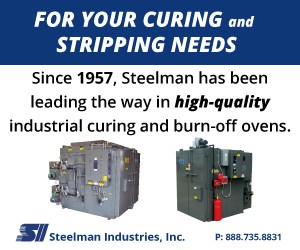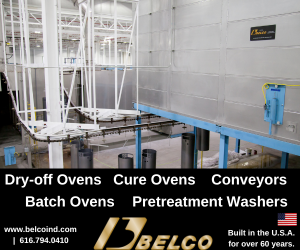Published
Impact of Heat on Chromate Conversion Coating
Will the internal trivalent chromate conversion coatings that are not protected by the CARC paint degrade and become less non-conductive or resistant to corrosion?
Q. We build military radios and are considering powder coating CARC paint on our radios. We use trivalent chromate conversion coatings on all surfaces prior to painting. Will the internal trivalent chromate conversion coatings that are not protected by the CARC paint degrade and become less non-conductive or resistant to corrosion?—J.F.
A. The chromate conversion coating has moisture content that is sensitive to temperature. If it is exposed to temperatures above 140°F for enough time, it will dehydrate and lose a significant degree of corrosion and electrical resistance. The material may not totally lose the desired properties, but it will be compromised. I suggest you do some testing to see if it is a major problem for your parts. Subject the exposed chromate to the oven on your line and then do some corrosion and resistance testing to see if the surface is acceptable for your operation and specifications.
Related Content
-
Conveyors and Paint Systems
Choosing the right conveyor system, coating technology, and ancillary equipment.
-
Powder Coating Overcomes Post Forming
Six Sigma methodology, open communication, and collaboration produce results for leading boat manufacturer.
-
Calculating the Cost of Powder Coating
How can you calculate the cost of powder coating a component if you only know its surface area? Powder coating expert Rodger Talbert has the answer.













